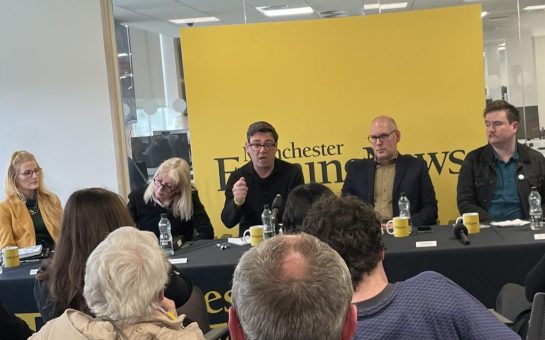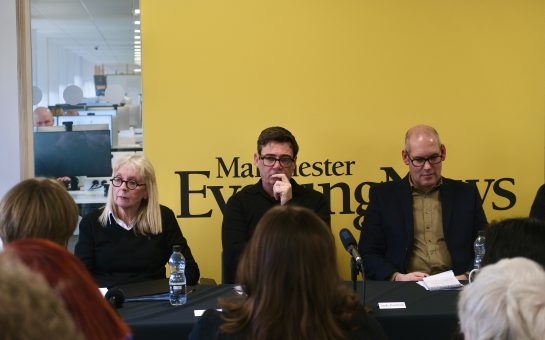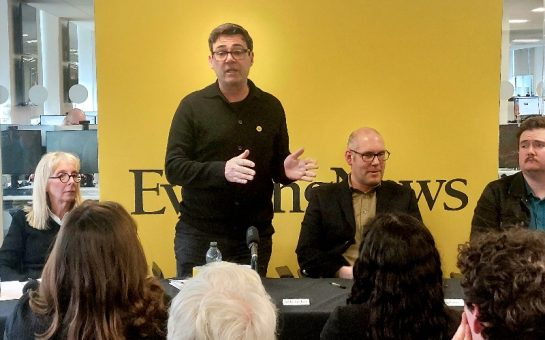In the run up to May’s General Election UKIP and Nigel Farage helped set the political agenda and brought the question of EU membership to the forefront of British politics.
In particular, the focus was on the levels of migration coming from inside the European Union and the impact it was having on the NHS, other services such as our benefits system, the impact in communities and the overall financial cost to the UK.
What followed appeared to be fear from the Conservatives that they would lose votes to UKIP in the upcoming general election.
This was boosted by former MP Mark Reckless defecting to UKIP in the Rochester and Strood by-election, and a very vocal anti-Europe campaign by Farage.
In The Conservative Party Manifesto Prime Minister David Cameron then ‘committed that he will only lead a government that offers an in-out referendum’ on EU membership before the end of 2017.
After the resounding victory by the Conservatives, with a slim majority, The Prime Minister has begun his proposed EU membership treaty reforms, meeting with EU leaders to discuss the UK’s position.
Cameron has been keen to ensure that he is seen to be doing all he can to get the best deal for the UK.
Even though he recently admitted that it may be difficult to reach a treaty change before the imposed referendum date.
Cameron said after a recent European Council summit in Brussels: “I am delighted that the process of British reform and renegotiation and the referendum we are going to hold – that process is now properly under way.
One the main issues that the Conservatives would like to tackle is immigration and ‘unnecessary interference’ from Brussels, which the Tory’s feel is too bureaucratic and undemocratic.
Immigration has always been a highly contested issue invoking strong opinions on how best to manage it, especially from the EU, after the enlargement and inclusion of countries from Eastern European.
The Conservative Party was keen to emphasise in their manifesto their commitment to the single market but opposed to ‘an ever closer union’.
Another issue, aside from immigration, is how the proposed changes will create a level of uncertainty throughout the economy and for UK businesses.
Many businesses in Manchester will rely on trade agreements in place within the EU in order to do business, not just with EU countries, but with countries such as America, China and other fast growing economies like India.
The general public is being asked to decide our fate based on any renegotiation and concessions made.
Voters will be asked: ‘Should the United Kingdom remain a member of the European Union?’ despite the fact that a treaty change may not be implemented before that date.
A ‘yes’ vote would mean any proposed concessions and changes to the treaty have persuaded the public that we are better off within the European Union, which would have less impact on how businesses operate.
Chris Fletcher, Policy Director at Greater Manchester Chamber of Commerce said: “There’s no doubt that the whole discussion around the UK’s membership of the EU will continue to develop and grow in importance as we move nearer to the referendum.
“Following the Queens Speech and the release of the referendum question wording this whole issue has moved from an election manifesto item to something that is suddenly quite real.”
When The Chamber of Commerce surveyed members on this issue the vast majority, over two thirds said they would like to remain in the EU but with a renegotiated deal.
Mr Fletcher added: “The problems start when you delve a little deeper into what a new set of terms would look like as there are some very complex issues at play here.
“Whilst a “better deal” would be welcome it’s difficult to state simply what that would look like and there-in lies one of the big problems with this – the lack of a user-friendly version of what is at stake.”
The Greater Manchester Chamber of Commerce has also stipulated that “most businesses recognise that a withdrawal would cause some problems.”
A ‘no’ vote would change the face of British politics, in terms of the trade agreements the UK would have to negotiate outside of EU membership globally.
It would also remove the UK from any legislation that has been formulated and implemented on any issues that the EU had jurisdiction to impose based on membership.
This would change the way that UK businesses would operate internally and externally.
Mr Fletcher continued: “Whilst businesses trade where they can – borders don’t exist on a balance sheet – you couldn’t just pick things up the following day after a withdrawal as though nothing had happened.
“It would take time to set up new trade agreements and new laws replacing those that come as part of existing membership.
“The issue again is whether this would be a matter of weeks or years – no one seems to be able to answer this conclusively.
“No issue is insurmountable, business would find a way through but the gap and delay in achieving this could be damaging.
“Over the coming months we are going to be revisiting this as an issue again to establish a definitive position.
Mr Fletcher said the Chamber ‘will also be looking at whether this starts to have an impact on overseas businesses looking to use the UK as a launch pad into Europe.’
He added: “Already this year I have had dealings with a major US proposition looking to launch their European operations from the UK.
“If the UK were to pull out of the EU I would be surprised if they continued with these plans.
“The sooner that these questions are answered the better so that we don’t have real or perceived threats to our continued economic growth.”
It remains to be seen what concessions will be made and whether they will be made in time for the referendum and the effect this will have on public opinion.
The government may have to do all it can to reassure businesses, and the public, that any proposed changes will ultimately benefit the UK in the long term within EU membership.
A no vote would leave many questions unanswered and it is difficult to quantify what the short-term and long-term consequences would be economically, and the trickle-down effect this would have on UK businesses.
That would leave the UK in unchartered territory.
John Cridland, CBI Director-General, said: “The CBI wants the UK to be in a reformed EU – to reform it for the better, not just for the UK but for all Member States.
“While we have never claimed to be the sole business view on Europe, we speak for 190,000 businesses, employing nearly seven million people –which are mostly small and medium-sized firms.
“The large majority of those CBI companies believe that the benefits of the EU outweigh the disadvantages.
“But the EU must be more focused on driving growth, by signing trade deals and completing the digital single market, and interfere less in domestic affairs where it’s not needed like prescriptive regulation around working hours,” added Mr Cridland.
“It is not mutually exclusive to both recognise the benefits of EU membership and still want to push for reform to make it work better – most CBI members want to be in a reformed EU and are supportive of the Prime Minister’s ambitions.”
Picture courtesy of Number 10, with thanks.



